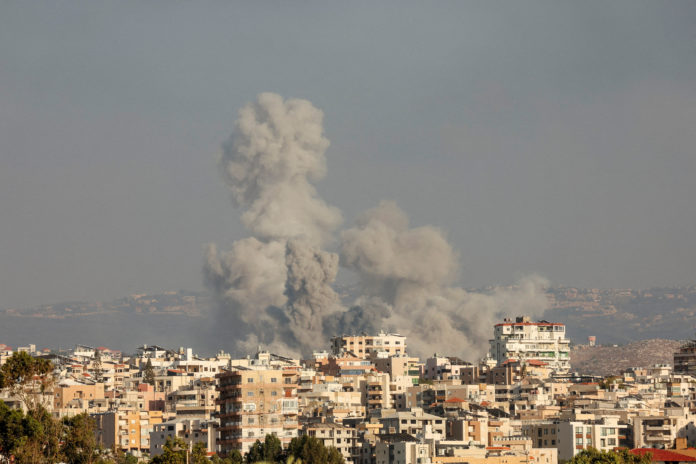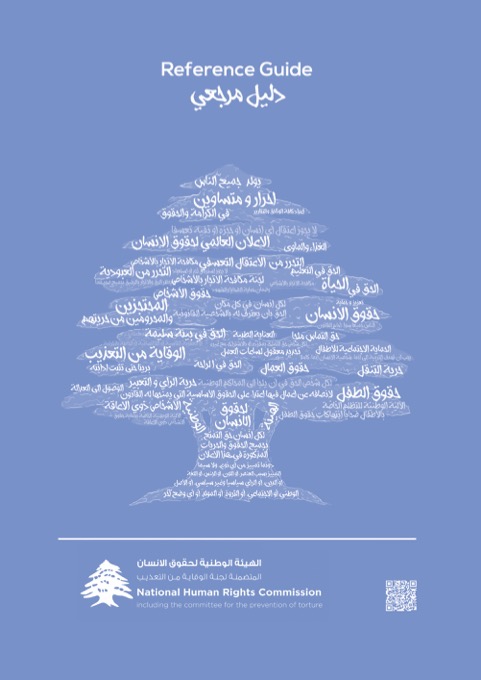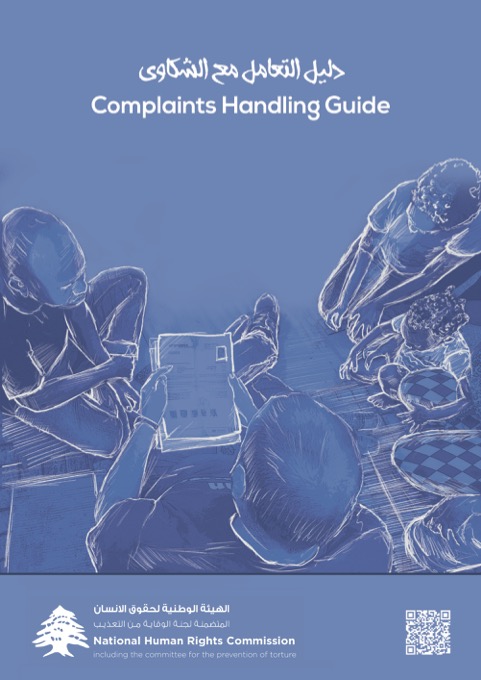هذا التقرير متاح أيضًا بـ: العربية (Arabic)
The National Human Rights Commission, including the Committee for the Prevention of Torture, held an emergency meeting at its temporary headquarters in Hazmieh to discuss an urgent action plan aimed at monitoring and documenting human rights and international humanitarian law violations resulting from the Israeli aggression on Lebanon, and to follow up using all available means to put an end to impunity.
The President of NHRC-CPT, Dr. Fadi Gerges, contacted the President of the Global Alliance of National Human Rights Institutions, Mrs. Maryam bint Abdullah Al-Attiyah, calling for the need for NHRIs in various countries to work and exert pressure to demand the convening of a special session of the Human Rights Council regarding the grave human rights situation in Lebanon. He urged the Council to adopt a resolution that urgently establishes an ongoing independent international commission of inquiry to investigate all violations of international humanitarian law and all violations and abuses of international human rights law that occurred before and after September 22, 2024, within Lebanon.
Gerges also contacted the Secretary General of the Council of Ministers, Judge Mahmoud Makkiya, and informed him of the steps the Commission has begun to take.
The Commission announced the launch of the phone line 81338353 to coordinate efforts to monitor human rights and international humanitarian law violations and receive volunteer applications. It also reminded the public of the hotline 03923456 for complaints and inquiries, noting that this line operates 24/7 for those wishing to send information via social media.
The Commission further called on anyone interested in volunteering with its teams to contact the hotline, as these teams have begun monitoring and documenting human rights and international humanitarian law violations. In addition to reporting complaints from displaced persons and those affected, they are responsible for relaying them to the relevant authorities, particularly the “National Disaster and Crisis Response Operations Coordination Committee” and other teams working on coordinating efforts among various governmental bodies addressing the humanitarian consequences.
Background
International humanitarian law (IHL) – also called the “law of war” or the “law of armed conflict” – sets out detailed rules that seek for humanitarian reasons to limit the effects of armed conflict. It protects those who are not, or are no longer, taking part in the fighting and sets limits on the means and methods of warfare. IHL is a universal set of rules. It consists of international treaties and customary rules that are specifically meant to resolve humanitarian issues arising directly from armed conflict, both international and non-international. Its core treaties are the 1949 Geneva Conventions and their Additional Protocols of 1977 and 2005.
Per the provisions of Article 16 of Law No. 62/2016 (Establishing the National Human Rights Commission), the Commission is responsible for monitoring and documenting human rights and international humanitarian law violations during periods of armed conflict and following up using all available means to end impunity.
Treaty-Based Sources of IHL
The four Geneva Conventions of 1949 (GC I, II, III, and IV), which have been universally acceded to or ratified, constitute the core treaties of IHL. The Conventions have been supplemented by Additional Protocols I and II of 1977 (AP I and AP II), which relate to the protection of victims of international and non-international armed conflicts, respectively, and by Additional Protocol III of 2005 (AP III), which relates to an additional distinctive emblem.
Other international treaties prohibit the use of certain means and methods of warfare and protect certain categories of persons and objects from the effects of hostilities. These treaties include:
• The 1925 Protocol for the Prohibition of the Use of Asphyxiating, Poisonous or Other Gases, and of Bacteriological Methods of Warfare
• The 1954 Convention for the Protection of Cultural Property in the Event of Armed Conflict and its two Protocols of 1954 and 1999
• The 1972 Convention on the Prohibition of the Development, Production, and Stockpiling of Bacteriological (Biological) and Toxin Weapons and on their Destruction
• The 1976 Convention on the Prohibition of Military or any Other Hostile Use of Environmental Modification Techniques
• The 1980 Convention on Prohibitions or Restrictions on the Use of Certain Conventional Weapons Which May Be Deemed to Be Excessively Injurious or to Have Indiscriminate Effects (CCW) and its five Protocols of 1980 (I, II and III), 1995 (IV), and 2003 (V)
• The 1993 Convention on the Prohibition of the Development, Production, Stockpiling, and Use of Chemical Weapons and on their Destruction
• The 1997 Convention on the Prohibition of the Use, Stockpiling, Production, and Transfer of Anti-Personnel Mines and on their Destruction (APMBC)
• The 2000 Optional Protocol to the Convention on the Rights of the Child on the involvement
of children in armed conflict
• The 2006 International Convention for the Protection of All Persons from Enforced Disappearance
• The 2008 Convention on Cluster Munitions (CCM).
Alongside treaties, customary law remains an important source of IHL. It can fill gaps if the IHL treaty is not applicable.


